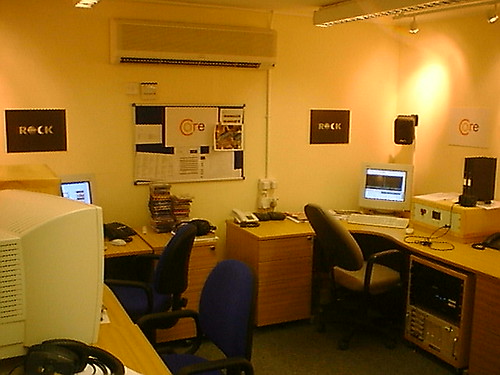What a weekend for writing about radio stations changing hands. In the last 3 days, there have been two confirmed changes of ownership, and further speculation about the imminent future of Planet Rock. James has written up his thoughts on the sale of Virgin Radio to Absolute / TIML and the dropping of the “Virgin Radio” name, and XFM South Wales has been sold (7 months after it went on-air) to Jason Bryant’s Town and Country Broadcasting, and has been re-branded “Nation Radio” with immediate effect.
One change of ownership that is unlikely to involve a name change is the supposedly imminent sale (by GCap Media) of Planet Rock. The name of Malcolm Bluemel, an entrepreneur, has been mentioned in a report in The Times, although this is wholly unconfirmed at this stage. It’s certainly caused some ripples this week, as it appears that Brian May (of Queen fame) was rather surprised/disappointed to find that he wasn’t the only person willing to save the station. This Report also speculates that Mr. Bluemel will acquire the station for a “nominal sum”, which seems surprising for a station with 560,000+ listeners a week, and with a remarkable profile for a radio station which has spent virtually nothing on marketing in its eight and a half year existence.
I must admit to feeling a bit sad to see it leave home (although physically it’s not going very far); Planet Rock (along with Core) was one of the Digital Stations I started back in November 1999, and whilst I’m no big champion of classic rock music, I was involved in the research process behind the formation of Planet Rock and it’s left me in no doubt whatsoever that this is a radio station that talks to a very definite, passionate, and affluent audience, who – most importantly – are not traditional users of Commercial Radio. (Radio 2 and Radio 4 were the primary radio stations of most Planet Rock listeners).
I think Planet Rock could do much better, and realise its true potential, in an environment where everyone is focused and passionate only about the success of that station, and its standing with the (classic) rock community. Where influence is measured by audience figures, Planet Rock (and Core) always suffered from being a strange anomaly within GCap Media – national radio stations, but with regional radio station audience sizes. It’s understandable that the focus is selling Classic fm’s 6.8m listeners per week and the revenue expectations form that, rather than tending to and growing the Planet Rock brand.
One issue won’t change, at least as part of this deal, and it’s the unrealistic economics of the DigitalOne multiplex. If I was running Planet Rock (which I haven’t done for many years), I’d seriously be looking at the options to find it another DAB home. The reason that D1 is now half empty is that the costs of being on it appear virtually insurmountable. In my opinion, it’s a terrible business model for the wider radio industry, although I can understand D1’s attachment to, and defence of, it.
The interesting common thread of all these three sales is that the common consensus seems to be that the stations will fare better with their new owners than the old ones. And in each case, it seems that the new owners are smaller and more passionate about their purchases than the old ones. Maybe the radio industry is about to enter into a new phase of development, where smaller stations succeed through concentrated and focused passion about what they do best.
Update: 4th June – the sale of Planet Rock to Malcolm Bluemel’s “Rock Show” company has been confirmed. Good luck to the Planet Rock team.
(Photo: One of my own, taken on a frankly appalling first generation Digital Camera , of the first home of Planet Rock, Core and The Mix).

